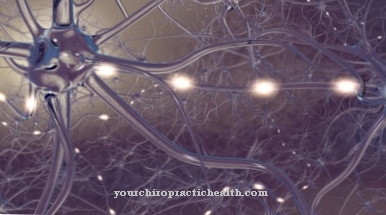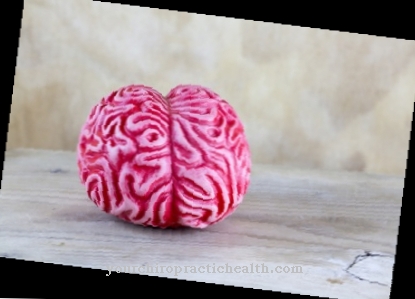Simply put, this is cognition the human ability to think.However, this process makes use of various information processing processes, including cognitive abilities such as attention, learning ability, perception, remembering, orientation, creativity, imagination and similar, as well as mental processes such as opinions, thoughts, intentions or wishes. Emotions have an important influence on thinking. Perception and conception determine the direction of thought and thus also determine the character of a person.
What is the cognition?

Cognition includes all processes of information storage and ingestion, as well as the application of the learned or perceived content. Knowledge and thinking make up part of cognition, and from a psychological point of view, the term is used in a variety of ways. People have been grappling with such cognitive processes for centuries, the term then found its way into experimental psychology as a scientific discipline and was first researched in more detail in the 19th century. Above all, human perception was an important part of the discussion, especially visual perception.
In addition to the fields of psychology, biology, philosophy, neurosciences and research on artificial intelligence also became aware of the cognitive processes. All of these areas make up the cognitive sciences.
Function & task
In this sense, cognition refers to the entire neuronal information processing within the brain, to all processes that are connected with perception, thinking and memory. Mental events are deepened through cognition, including knowledge, beliefs, attitudes to being and the world, or expectations. Cognition can take place consciously or unconsciously. For example, if people want to solve a mathematical formula, they use conscious processes, but often unconscious processes are used to form their own view.
Since behaviorism, cognitive processes have been related to a stimulus-response pattern. In particular, the behavior in thought processes was researched and defined more precisely through processing stages. All internal ideas are part of how people perceive their world from their subjective point of view, how they react to it, what they understand, know and see, how they process or redesign. Information processing is just as much a part of cognition as the way people think about themselves, their environment, what they have experienced and what they expect from their future. More precisely, this means that not only do emotions have an influence on cognition, but vice versa this also has an influence on the world of feelings.
The performance of the cognitive abilities is limited here. The perception via the sensory organs uses information for filtering and changes what has been recorded until it penetrates into the consciousness of the person himself. Preconceived opinions are shaped and therefore do not allow conditions to be simply taken up and saved as neutral. You are always controlled and changed by your own knowledge, thinking and feeling. The perception is permanently transformed, processed, stored, reduced, activated or reactivated. Sometimes this can lead to complete changes in perception, e.g. B. in an interpretation of non-existent conditions, as is the case with the onset of hallucinations.
There are also impairments of cognition in thinking and learning. Thinking is based on working or short-term memory. This has a rather small capacity and is mainly there for the temporary storage of content, which can then be accessed in a short time. This makes it possible to grasp and understand the environment or, for example, a sentence that has been read.
For long-term memory, the cognitive ability even proves to be manipulative. Saved content is changed in advance and afterwards. Expectations influence e.g. B. the perception of what is noted. It is similar with newly added information.
Concentration, attention and motivation basically depend on cognitive performance and are impaired by distraction, tiredness, listlessness and similar conditions. It is not only the physical properties of the sensory stimuli that determine human perception and perception, but also internal processes in the brain. Expectations are based on specific and learned experiences. The processes of recognition and information processing are always influenced.
You can find your medication here
➔ Medicines against memory disorders and forgetfulnessIllnesses & ailments
Cognitive disorders come in the form of various features. Above all as retentive and memory disorders, which are mostly the result of mental illnesses, including depression or schizophrenia. It is similar with organic diseases in the nervous system. Significant cognitive disorders occur, for example, in multiple sclerosis, Alzheimer's or dementia.
Research results also showed that even diet has an impact on cognitive processes and disorders. In dementia, the homocysteine level is usually high and the blood plasma low. The body is then often insufficiently supplied with vitamins. Cognitive impairments are then not only found in the area of thinking and memory performance, but also have an effect on language skills and learning new content. It is then often no longer possible to cope with everyday situations. The ability to perceive changes completely.
A reduction in cognition can also be caused by taking medication. On the one hand, this is based on the sensitivity of older people to central nervous side effects, since the entire metabolism changes with age, especially in the area of neurotransmitters. The permeability of the blood-brain barrier is increased and the drugs work faster. The drugs then reach the central nervous system more easily. Side effects are then cognitive limitations caused by drugs such as poor concentration and attention, memory problems that extend into delirium, and disorders of consciousness and perception. Other symptoms are slower motor skills and constant states of restlessness.
Drugs that exhibit anticholinergic properties are particularly problematic because cholinergic neurons play an essential role in cognition and awareness. Parkinson's disease, for example, is treated with this drug, which can trigger other cognitive disorders, especially in the elderly.












.jpg)



.jpg)










.jpg)
